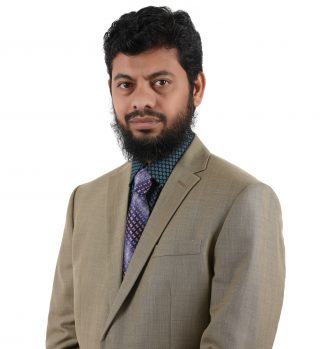Instrumentation and Control Engineering (ICE): What is it, why is it important, and the future
From Mohammed Ziavudeen
Our new ICE Business Development Manager, Mohammed Ziavudeen dives into all things ICE (Instrumentation and Control Engineering); including his experiences, the impact, and the future, such as the increasing focus on digitalisation.
Tell us a little bit about yourself?
My name is Mohammed Ziavudeen and I am Alderley’s new ICE Business Development Manager, based in Saudi Arabia.
I completed my bachelor’s degree in Instrumentation and Control Engineering prior to starting my professional career in India. In 2005, I moved to Abu Dhabi (UAE) as a Project Engineer in the automation field for the cement industry, which reinforced my interest in automation, and I haven’t looked back.
In 2009, I joined Alderley Dammam as Systems Engineer. This key role involved working closely with our local customers to understand, recommend and deliver solutions to meet their needs – something I am deeply passionate about and will be a core focus of my new role.

What is ICE, and why is it so important?
ICE is Instrumentation and Control Engineering.
People ask me all the time why it needs to be combined. From my perspective and my experiences from working closely with many customers over the years, instrumentation and controls go together like hydrogen and oxygen to create something even more – especially for brownfield upgrades where the implications from only considering one element could have a significant impact on the performance of the other.
At Alderley, we specialise in both areas to ensure any brownfield work not only supports the effectiveness of the instrumentation or control, but the wider connected system.
What is the future of ICE in Saudi Arabia?
I would like to recall the historic event in 1971 when there was dramatic shift in the global economy from the Gold-Dollar to the Petro-Dollar. Petro-Dollar has since dominated the world for 50 years, but now with a new technological upshift, there is an increasing focus on digitalisation and data becoming the key driver.
This will result in a need for specialist modifications and upgrades across all key data points to effectively acquire, monitor and manage data systems in this new digital world. This is where the Alderley ICE team can add great value for our customer and advise them on and support the delivery of these updates.
How has the industry changed during your career, and what lessons can support us in the future?
Since 2016, we have seen a general shift in focus from new greenfield projects towards expanding and enhancing brownfield projects. But that doesn’t mean that every customer has the same approach or need.
The most important thing I have learned – and something that will become increasingly important – is customer focus. In a mature energy market with a large historical installed base, no two modifications or upgrades will be the same: developments are different, customer needs are different, and every engagement requires a different solution.
This is again where Alderley can add the most value. As an in-country and independent systems integrator – with vast expertise in mechanical, electrical, process and digital solutions – we can design, independently select, integrate and deliver the right solution for our customer needs.
What do you think the future holds for Alderley?
It’s an exciting time to be part of Alderley, and especially Alderley in Saudi Arabia.
Saudi Aramco have an ambitious development programme and continue to be among the global leaders in new technologies and processes in the energy industry. And as well as the global trends of digitalisation, there is a real emphasis to support knowledge transfer to in-country operators and future energy engineers alike – something that I am very passionate about and something that Alderley are very active in supporting, especially through our local facilities in Dammam.
What is the most memorable event in your career?
I have lot of memorable events working at Alderley, and especially with some of the characters in our team.
One of my highlights is from 2010, when Saudi Aramco CMU visited for a Factory Acceptance Test of a bi-directional prover. However, rather than demonstrating how the prover would work on the SCADA, there was a need to demonstrate how it would work in the field. Reacting swiftly, we developed circuitry overnight to identify the detector pulse and start a siren (one which we managed to procure from a scrap ambulance). This helped the CMU FAT team to visualise and compare the SCADA and bi-directional prover as if it were in the field. Overall, it was a great success, a fantastic team effort demonstrating agility, technical excellence and customer focus, and was very much appreciated by CMU.
If you’re not meeting with (or calling during these times) existing and prospective clients, how do you spend your free time?
I’ve always been interested in new technologies and how things work. In my school days, I used to pick up bits of material, such as a small DC motors and actuators to see what I could make. And after taking this into my college studies and presenting a paper on robotics, I have developed a passion for automation and robotics. I also like reading about new technologies and spending time on software programming.

